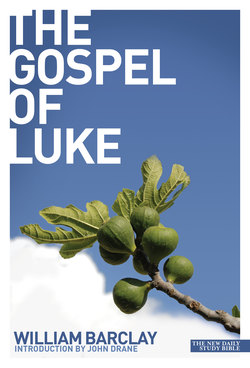Читать книгу Gospel of Luke - William Barclay - Страница 11
На сайте Литреса книга снята с продажи.
ОглавлениеINTRODUCTION
(by John Drane)
William Barclay never prefaced his writings with extensive literary analysis of the Bible books. He believed that the main focus of his attention should be the text itself, and he always aimed to allow the original writers to speak for themselves. Had he been writing today, he might have felt it necessary to say a little more about the fact that Luke’s gospel is just one section of the two-volume work of Luke–Acts, and to have paid more attention to the various ways in which Luke’s story of the life of Jesus is similar to, yet different from, the other New Testament gospels. Certainly, that has been a major preoccupation of scholarship over the last twenty years. Of course, Barclay was not unaware of such questions; and, though he never uses words like ‘redaction criticism’, he was obviously happy with the concept (that each of the evangelists placed their own distinctive spin on the stories which they record).
One of the major characteristics of Luke’s gospel is its stories. It contains some of the most striking of Jesus’ parables, not found in other gospels – stories like the Good Samaritan and the prodigal son (or, as Barclay preferred, ‘the good father’). One of Barclay’s own skills was the ability to think in pictures, and his comments on Luke are full of graphic descriptions of human life, both in the first century ad and in the world he himself knew. Throughout, he writes with ease about the social and historical background of the life of Jesus, but always combining his considerable intellectual knowledge with corresponding insights into human nature which are as true today as they were when he first wrote. On Luke 5:36–9, he comments: ‘We should never be afraid of adventurous thought . . . of new methods . . . Any business which had lost as many customers as the Church has would have tried new ways long ago – but the Church tends to resent all that is new.’ And on 14:25–33, ‘It is possible to be a follower of Jesus without being a disciple’. Comments like that (and not only on that topic) ensure the continuing relevance of Barclay’s work. Like the writer of Luke – and indeed of Jesus – he has the knack of cutting through irrelevance to address the most fundamental questions of all: how can we be good, live closer to God and be more spiritual people?
John Drane
University of Aberdeen
2001
